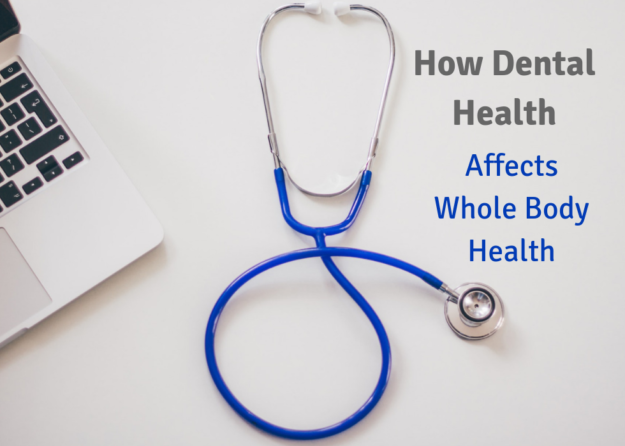The human mouth teems with bacteria. Every time we eat or drink, food particles embed in the gums and between the teeth. Often, this causes bad breath. One of the biggest causes of bad breath is the collection of bacteria on the tongue. This bacteria often form a white film on the tongue, which causes the noxious odor. Brushing the tongue and using a tongue scraper helps eliminate this foul-smelling film.
Poor dental health does more than cause bad breath, as noted by dentist Karl Jobst Grove OK. It affects your entire body. According to the Mayo Clinic, oral health problems are linked to cardiovascular disease and pregnancy problems. Certain conditions, such as diabetes, may also cause a decline in oral health, necessitating special dental care. Here are several ways that dental health affects your overall well-being:
Periodontal danger
Most people worry about tooth decay but pay less attention to the risk of periodontal disease. Periodontal disease starts as gingivitis, which causes gums to become tender and bleed. Eventually, bacteria and plaque become embedded in the gums, resulting in gum recession. A recession of the gums causes teeth to loosen and eventually fall out.
Gum disease also affects the bones in your face and jaw. Eventually, it can lead to bone deformities. Severe periodontal disease must be treated by a dentist or periodontist, as noted by dentist Karl Jobst Grove OK.
Endocarditis
Endocarditis is an infection of the heart’s lining. The infection causes inflammation. If left untreated, the inflammation leads to damage to the heart. The complications are life-threatening.
This disease occurs because bacteria from other parts of the body enter the bloodstream and are transported to the heart. Though the bacteria can come from many areas of the body, it frequently originates in the mouth. Mouth bacteria are absorbed through the gums, often as a result of gingivitis or periodontal disease.
Symptoms include the following:
- Flu-like symptoms
- Fever
- Chills
- Night Sweats
- Joint aches
- Muscle aches
- Shortness of breath
- Fatigue
- Chest pain while breathing
- Swelling in the feet, legs, or abdomen
Antibiotics are often used to treat the infection. In serious cases, surgery may become necessary. The symptoms can indicate other serious diseases as well, so anyone experiencing them should see a doctor right away.
Cardiovascular disease
When bacteria from the mouth leaks into the bloodstream through the gums, it can contribute to clogged arteries and heart disease. Plaque from our teeth can become the plaque that blocks arteries. This ultimately may lead to chronic fatigue, loss of cardiovascular capacity, and a heart attack or stroke. Practicing healthy oral hygiene keeps plaque from forming in the mouth and being circulated through the body.
Pregnancy problems
Pregnant women need to focus on their oral health as well as other factors that contribute to a healthy baby. Periodontal disease has been linked to low birth weights and premature births.
Some conditions contribute to oral health problems
Diabetes causes a reduction in the body’s ability to fight infection. This can cause infections to occur in the mouth, leading to dental problems. Studies have also shown that good oral hygiene helps diabetics control blood-sugar levels.
People with HIV or AIDS may suffer from oral health problems, such as mucous lesions. Osteoporosis and Alzheimer’s disease have also been linked to declines in oral health.
It’s easy to think of dental issues as separate from other health conditions. This notion is false. The human body is one unit. Difficulties in one area often spread to others. Practicing good oral hygiene and regular dental visits are important both for preventing tooth decay and maintaining general good health.










